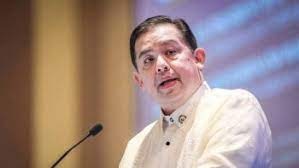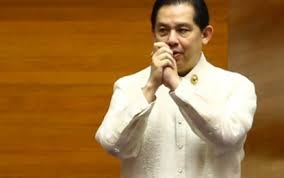Department of Justice Dispels Misleading Reports, Outlines Strict Requirements for Witness Protection Program

MANILA, Philippines—The Department of Justice (DOJ) moved decisively on Friday (October 17) to quell swirling public speculation regarding the status of former Speaker of the House of Representatives, Leyte 1st District Rep. Martin Romualdez, in connection with the ongoing investigation into the multi-billion-peso flood control project anomalies. The department formally denied reports suggesting that Romualdez was either being considered for or had applied to become a state witness, clarifying the procedural and legal prerequisites for such a designation.
In a concise and firm statement, the DOJ aimed to ground the public discourse in verifiable facts, away from what it termed as “false, misleading facts or political propaganda.”
“The Department of Justice formally denies reports that former Speaker of the House of Representatives Martin Romualdez is currently being considered as a state witness. As of date, former Speaker Martin Romualdez has not filed an application for state witness with the DOJ,” the statement read, providing a definitive timeline for the status of the high-profile legislator who has been linked to the alleged corruption mess.
The Rigorous Path to State Witness Immunity
The DOJ took the opportunity not only to correct the misinformation but also to educate the public on the stringent legal process required for an individual to gain the protected status of a state witness. This designation, which carries the potential benefit of immunity from criminal prosecution, is not granted lightly or by political maneuver.
According to the department, any application for state witness status must be formally filed and processed through the Witness Protection, Security, and Benefits Program (WPSB). This program operates under the provisions of Republic Act No. 6981, which sets out clear, non-negotiable conditions designed to ensure that the process serves the administration of justice, rather than simply protecting those implicated in a crime.
The agency stressed that every applicant, irrespective of their political standing or position, must subject themselves to a meticulous evaluation.
“This application, like all others, will have to be evaluated first to ascertain whether or not the applicant qualifies as state witness,” the DOJ stated.
Under the law, key criteria for an accused person to qualify as a state witness typically include:
-
Absolute Necessity: Their testimony must be absolutely essential for the successful prosecution of the crime.
No Other Direct Evidence: There must be no other direct evidence available for the proper prosecution of the offense committed.
Substantial Corroboration: Their testimony must be substantially corroborated in its material points.
Least Guilty: The applicant must not appear to be the “most guilty” among those charged.
No Moral Turpitude: They must not have at any time been convicted of a crime involving moral turpitude.
By highlighting these formal requirements, the DOJ effectively countered the notion that a state witness arrangement could be a result of informal political accommodation or media speculation.
Commitment to Fairness and Impartiality
Amidst the politically charged atmosphere surrounding the flood control investigation, which has implicated several prominent figures, the Department of Justice reiterated its solemn commitment to an impartial and evidence-based inquiry. The assurance serves as a check against claims that the probe might be used for partisan purposes.

“The Department will go where the evidence leads us,” the agency declared, emphasizing that their commitment is to the facts unearthed by the investigation, not to political affiliations or influence.
Furthermore, the DOJ stressed the principle of equality under the law: “No one will be spared if the evidence so warrants.” This statement is a critical assurance to the public that the investigation will adhere strictly to legal standards, regardless of the stature of the officials involved.
A Warning Against Political Propaganda
In a powerful closing caution, the DOJ addressed the broader information landscape, which it acknowledged is often polluted by propaganda and unverified claims, especially when high-ranking officials are involved in corruption allegations.
The department explicitly warned the public “to not fall for false, misleading facts or political propaganda that twists or misuses legal terms to confuse the public.”
This warning underscores the volatile nature of politically sensitive investigations, where rumors and strategic leaks can be weaponized to influence public perception or pressure judicial outcomes. The DOJ’s directive is clear: “We remind the public to rely on verified and official information coming from the DOJ exclusively.”
In essence, the DOJ’s statement is a threefold message: a categorical denial of the Romualdez state witness reports; a firm restatement of the legal and procedural hurdles for the WPSB; and a strong advisory for the public to maintain critical vigilance against misinformation designed to distort the integrity of the ongoing, high-stakes anti-corruption drive. The department’s focus remains squarely on a “swift and fair” investigation, guided by evidence and the rule of law.





